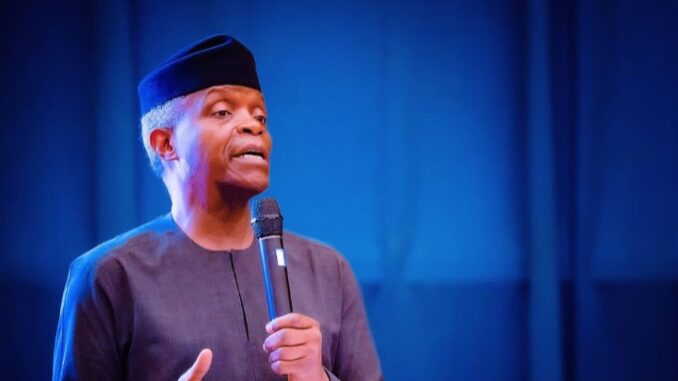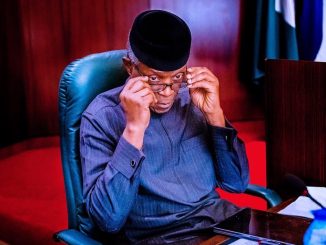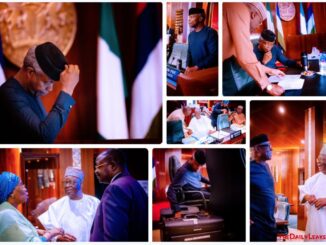
By Emmanuel Babafemi
Former Nigeria’s Vice President, Prof. Yemi Osinbajo, SAN, has passionately advocated for Africa to assume a leading position in the worldwide transition to renewable energy.
Osinbajo’s assertion underscores the continent’s immense potential to drive the shift towards sustainable energy solutions and play a pivotal role in shaping the future of global energy dynamics.
In a recent interview with CNBC Africa, Yemi Osinbajo, the Global Advisor at the Global Energy Alliance for People and Planet (GEAPP), made a compelling case for Africa to take the lead in the global renewable energy transition.
Osinbajo highlighted the significant progress made over the past decade, stating, “Since 2014, the principle of sustainable energy for all has become firmly established in the sustainable development work.
“It was elevated to the top of the climate agenda by the Paris Implement and has been adopted as a priority by political and business leaders alike.”
He noted that the share of renewable-based energy capacity in developing countries has grown in the last decade, reaching “about 38 per cent close to 40 per cent anyways since 2021.”
Additionally, Osinbajo pointed out that “on average in developing countries, there is about 9.6 per cent annual growth in renewable energy installation, and since 2015, the global population with access to electricity has increased from about 87 per cent to 91 per cent.”
Osinbajo also mentioned the improvement in access to clean cooking fuel and technology, stating that “in 2021, about 71 per cent of the global population had access to clean cooking fuel and technology, up from about 64 per cent barely a decade ago.”
However, Osinbajo acknowledged the challenges that remain, stating, “The pace of energy transition is still too slow, and the benefits are not being shared equitably. In other words, we don’t have a just transition just yet.
ALSO READ: Osinbajo makes case for ‘just energy transition’ at UNDP cluster meeting in Namibia
“Almost 500 million people in the least developed countries, mainly in Africa, remain without electricity, and another 150 million people lack access to reliable electricity,” Osinbajo said.
He further highlighted the reliance on harmful fuels, noting that “another 2 billion people globally continue to rely upon harmful fuels to meet their energy needs, and the consumption of energy remains the dominant contributor to climate change, accounting for almost 60 per cent of total global greenhouse gas emissions.”
To address these issues, Osinbajo emphasised the need to demonstrate the economic and social benefits of the energy transition to African leaders.
“I think the first thing to do is to show the economic case, show the case of the creation of jobs, and show the case for creating a better life for the vast majority of our people.
“Once we can demonstrate those cases, it becomes much easier to get African leaders on board in the net-zero journey,” he said.
Osinbajo highlighted Africa’s abundant natural resources as a key factor positioning the continent to lead the renewable energy transition.
He noted that Africa has “30 per cent of global mineral reserves” and the potential to generate “460 gigawatts of wind energy.”
However, he acknowledged that currently, only “4.5 gigawatts” of this wind energy potential is being utilised.
By leveraging its natural advantages and addressing the challenges of energy access and equity, Osinbajo believes Africa can emerge as a global leader in the renewable energy revolution, driving sustainable development and a just energy transition across the continent.




